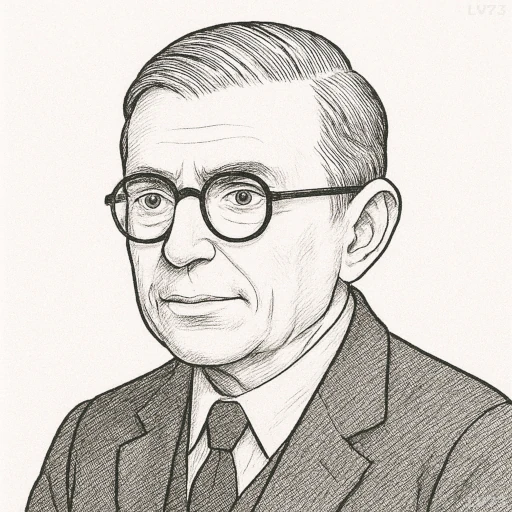“One always dies too soon or too late. And yet, life is there, finished: the line is drawn, and it must all be added up. You are nothing other than your life.”

- June 21, 1905 – April 15, 1980
- Born in France
- Philosopher, novelist, playwright
table of contents
Quote
“One always dies too soon or too late. And yet, life is there, finished: the line is drawn, and it must all be added up. You are nothing other than your life.”
Explanation
In this quote, Sartre confronts the absurdity and unpredictability of life and death. He suggests that, regardless of when or how we die, we often feel that we have died too soon (leaving life incomplete) or too late (as we run out of time before we have accomplished all we wish). This reflection speaks to the existential tension that comes with knowing that life is finite and yet, we never seem to reach the perfect conclusion or outcome we imagine. Sartre’s statement, “life is there, finished,” implies that life, once lived, is final—there is no going back, and all the moments that have passed cannot be undone. The “line is drawn,” referring to the completion of our existence, where everything must be added up, evaluated, and ultimately accounted for.
Sartre’s declaration, “you are nothing other than your life,” emphasizes that, in the end, we are defined by the life we lead, the actions we take, and the choices we make. Our identity is not determined by external labels, societal expectations, or any future possibilities; we are solely defined by the lived experience—the life we create through our decisions, actions, and engagement with the world. This perspective underscores existential responsibility: since life has no inherent meaning, we must define ourselves through our choices, knowing that when it is over, we are the sum of our lived experiences.
In modern contexts, this quote invites reflection on how we live our limited lives. In a world where time often feels both fleeting and overwhelming, Sartre’s words encourage us to confront the reality that we are responsible for the life we lead. It is a call to live with authenticity, taking responsibility for our actions and embracing the freedom to create meaning, even if the outcome is uncertain. The quote challenges us to think about how we engage with our own lives—understanding that in the end, we are defined by the sum of our choices and the life we lived, rather than any expectations about when or how it ends.
Would you like to share your impressions or related stories about this quote in the comments section?



